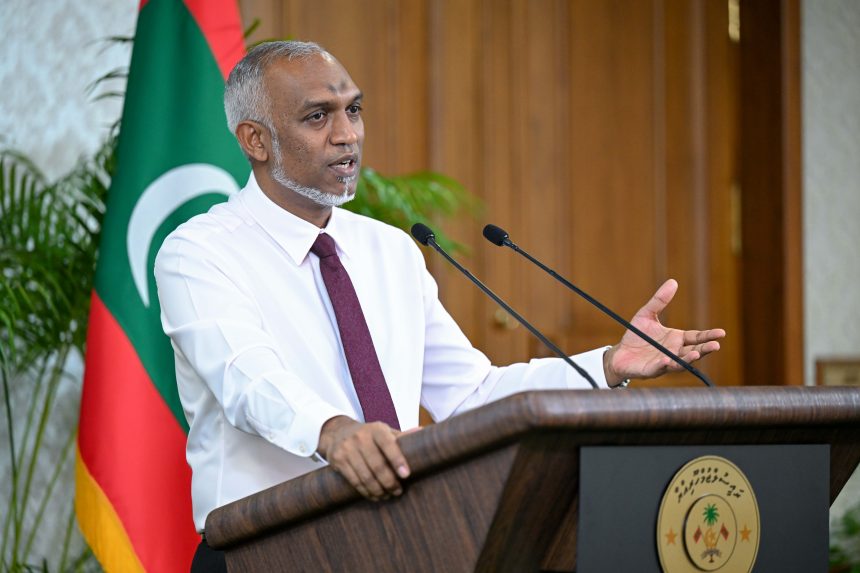In a press conference held today at the President’s Office, President Dr. Mohamed Muizzu reiterated his administration’s resolute commitment to fighting corruption through full-scale digital transformation under the “Maldives 2.0” initiative — a national policy launched a few months ago but now entering its critical implementation phase.
Addressing the media, President Muizzu stated that the cornerstone of the Maldives 2.0 policy is to eliminate corruption, accelerate government services, and usher in a new era of transparent governance. “When systems are automated, human interference is reduced. That’s when corruption dies and integrity thrives,” he said.
The President also underscored that the inspiration behind this ambitious vision was his recent visit to Estonia — a global leader in digital governance, transparency, and press freedom. He highlighted that Estonia, which ranks among the least corrupt countries in the world, is a living example of how digital systems can transform governance and restore public trust.
“Estonia has a fully integrated, inter-governmental digital framework and one of the highest press freedom rankings globally. That’s no coincidence. Transparency and technology go hand-in-hand,” he emphasized.
The Maldives 2.0 policy aims to overhaul the entire state system within three years, and President Muizzu announced that a national conference to formally launch the implementation phase will be held on May 9. The event will bring together stakeholders across ministries, agencies, and the private sector to mobilize the project.
Key components of the Maldives 2.0 blueprint include:
Revolutionary digital reforms across government sectors
Development of ICT systems tailored for Maldivian needs
Establishment of a robust digital legal framework
Creation of a sovereign and secure digital infrastructure
Streamlined, citizen-friendly government services
Advanced cybersecurity protocols for national resilience
Transparent open data platforms for government operations
Rollout of secure digital passports and identity systems
President Muizzu noted that the project is not merely technological, but ethical — designed to rebuild public confidence and eliminate the loopholes that enable misuse of authority.
“This is not just about going paperless. It’s about going fearless — fearless against corruption, against inefficiency, against injustice,” he said, as he concluded his remarks.
The Maldives 2.0 initiative reflects a bold political will to reshape governance and digital infrastructure. With this renewed momentum and presidential leadership, the Maldives is set to join the ranks of digitally empowered, corruption-free nations.




